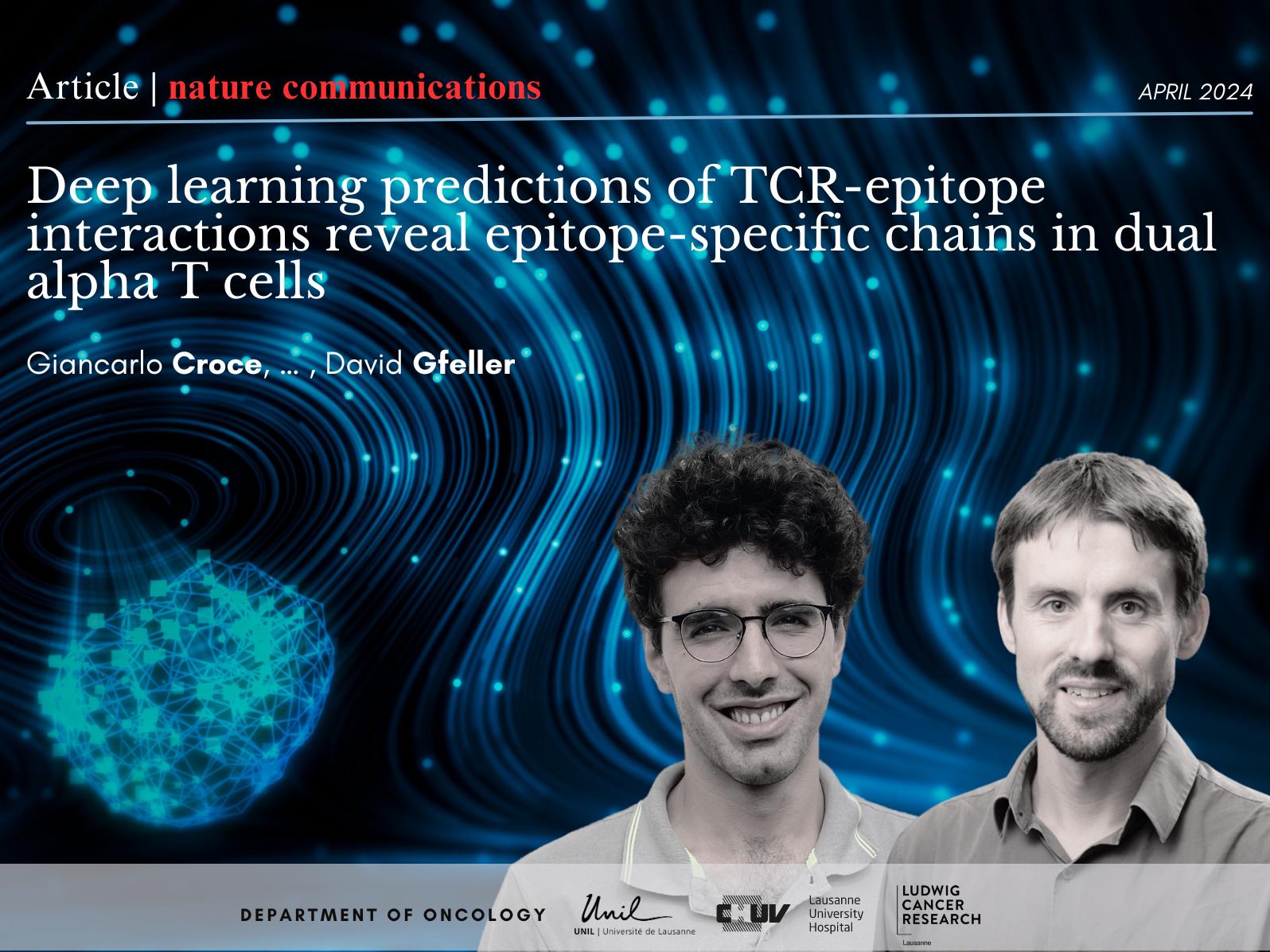English Français
Deciphering T Cell Specificity: AI Insights into Immune Surveillance
The team developed MixTCRpred, a deep-learning tool, to predict T cells targeting specific epitopes on cancer or infected cells, aiding in identifying disease-specific T cells and selecting candidates for immunotherapies.

Dr. Giancarlo Croce and colleagues, under the direction of Prof. David Gfeller in the Department of oncology UNIL-CHUV, recently published in Nature Communications their new deep-learning tool MixTCRpred *. This tool assists in characterizing T cell responses in diseases like COVID-19 and determining the specificity of dual α T cells. To achieve this, they leveraged large datasets of TCRs recognizing dozens of epitopes. MixTCpred takes as input the TCR sequence and uses its deep-learning model to predict interactions with specific epitopes. They used MixTCRpred to characterize T cell responses in patients with COVID-19 and to determine the specificity of dual α T cells, a subset constituting up to 10% of all T cells.
As data accumulates and accuracy improves, MixTCRpred will further aid in identifying viral or cancer-specific T cells from TCR repertoires and in selecting T cell candidates for cancer immunotherapies.
This study was generously supported by the SNF Sinergia program (CRSII5_193749) to David Gfeller and Giancarlo Croce, and the European Union’s Horizon 2020 research and innovation programme under the Marie Skłodowska-Curie grant agreement, No. 101027973 to Giancarlo Croce
* Deep learning predictions of TCR-epitope interactions reveal epitope-specific chains in dual alpha T cells
by Carine Dournes Söhnlein (DO UNIL-CHUV communication)